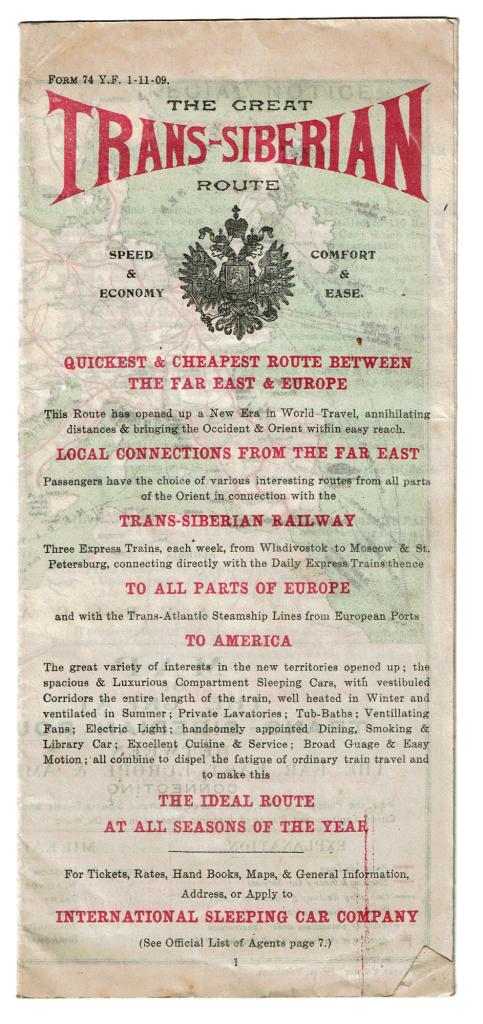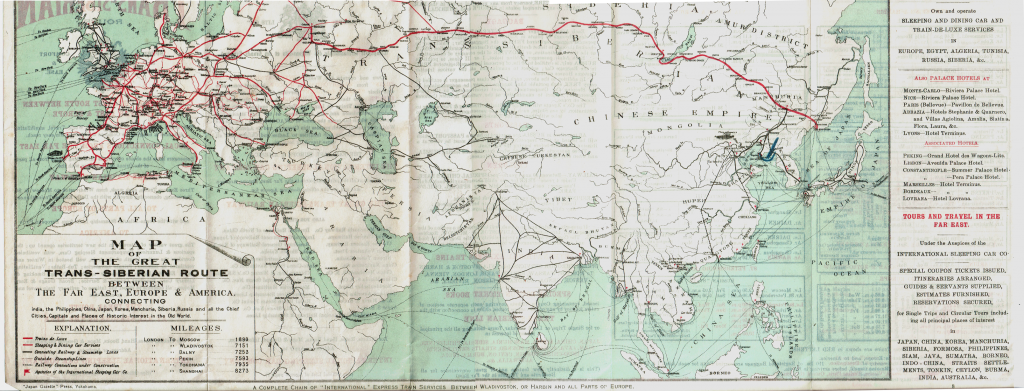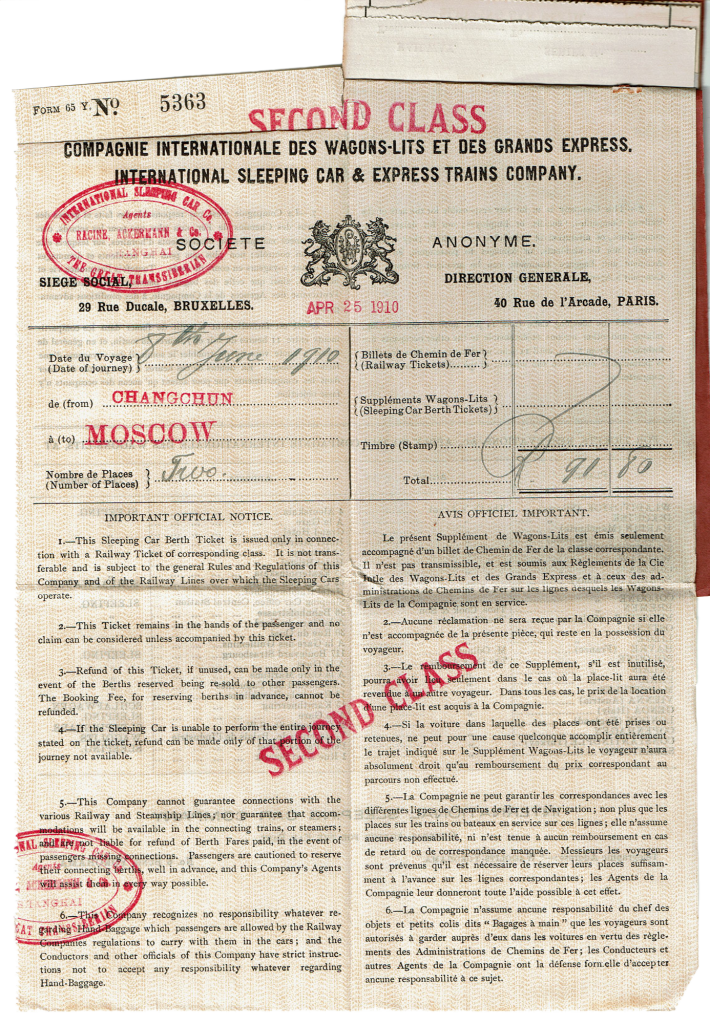Travelling on the Trans Siberian Railway
Vera, her two sisters, her niece and their father set out from England at the end of September 1909. They travelled to Moscow via the Hook of Holland, Berlin and Warsaw. They left Moscow at midnight on 6 October on the Trans Siberian Train, changing trains in Trkutsk and arriving at Harbin in China 9 days later on 15 October. From there they took the Russian State train, a Japanese train and then the North China railway, arriving in Peking on 19 October.
They would get out of the Trans Siberian train at frequent stops, buying bread, milk and apples from the peasants. While they ate lunch in the dining car they would make their own tea and supper, as ‘one feels one cannot eat two heavy meals.’ As they progressed East the clocks went forward. As Vera commented:
‘It is a bother that we seem to reach the interesting places after dark…the time is always changed about 9 o’clock in the evening when we jump to 10 and go to bed.’
Here are some more quotes from Vera and Mabel’s diaries, describing the journey:
6 October first day on the train
‘We did not have a very good night – the train shook so much. Another lovely morning–rather a struggle to dress four of us in the cabin and having to wait ages before we could get into the lavatory!’
9 October third day on the train
‘At breakfast time we got to Tscheljabinsk where the real Siberian part of the line begins. Bitterly cold wind blowing, the usual crowds of beggars, Jews and Tartars looking like Rembrandt’s drawings. …After leaving Tscheljabinsk the country seemed to change and look extraordinary, wild and dreary …we got to largish place called Kurgan at 4 o’clock. Flat country with small flat lakes here and there. It seems like the end of the world. We made a great curve round Kurgan which looks beautiful against the sunset. So far we have been going nearly straight due East the whole way.’
13 October 7th day where they changed trains
‘Got to Trkutsk at 5.30. The other train was drawn up alongside and we got into exactly the same carriage and car. No trouble at all. Such cold. The sun not up and hard, hard frost, the air gave one a pain in the temples. V and I flew off and went up some steps into town but we couldn’t see much as there was such a mist rising. All the people in sledges and with their sheepskins on and the snow very deep – but most glorious and the sunrise wonderful. We left at 7.’’
14 October 8th day – the Chinese frontier
The route skirted the Shilka river. ‘At about 3 o’clock we got to Aga, a little village. Strange Eastern looking people, neither Chinese nor Russian. We saw some camels on the plain and two wild boars galloping along. The country got gradually flatter all afternoon…Rather a long and weary evening as we had to wait up to pass the Russian/Chinese frontier at 11 – Manchuria. China!’
16 October onto the Russian State train
‘Our real journey in the wagon-lits ended yesterday as today we got into the Russian state train, which is quite a different thing – with no dining or sleeping cars.’
‘Harbin is an extraordinary and horrible place, enormous new houses in a sort of desert, the roads and squares are like ploughed fields. It is mostly Russian and has only grown up since the war…. Country flat and uninteresting.’
In April 1910 they returned to Europe by the Trans Siberian Train. The tickets shown here are for their return journey.



